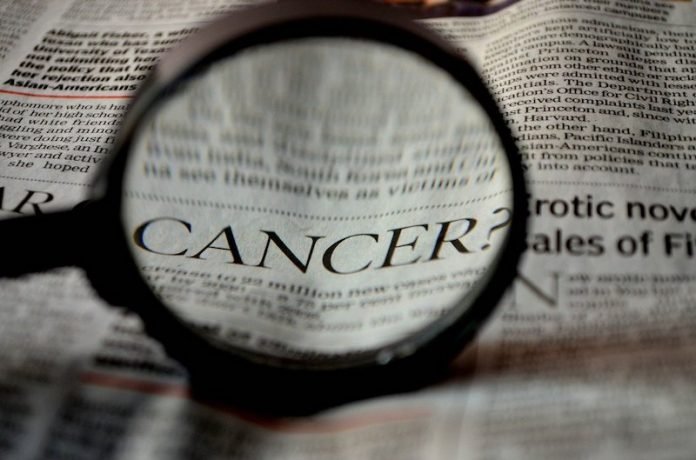
The pancreas is a gland located deep in the abdomen, between the stomach and the spine.
It is an important organ that produces enzymes that help digest food, and it secretes hormones—such as insulin—that help regulate metabolism. It’s not unusual for cysts, which are small fluid-filled pockets, to form in the pancreas.
Approximately 15% of Americans are believed to have a pancreatic cyst, and unlike other cysts such as those on the ovaries, liver or kidneys, pancreatic cysts have the potential to progress to pancreatic cancer over time.
While there is no sure way to prevent pancreatic cancer, physicians can make an impact on prevention immediately among people who have an increased risk of developing pancreatic cancer or detect the disease early when it is in an operable stage.
Russell Langan, MD, surgical oncologist at Rutgers Cancer Institute of New Jersey, shares more information on monitoring pancreatic cysts and pancreatic cancer.
Q: Who is at risk for pancreatic cancer?
A: The way which we think about the development of pancreas cancer included modifiable and non-modifiable risk factors.
Those which are non-modifiable include older age, male gender, race, family history of pancreatic cancer (two or more first degree relatives gives a 10% risk) and inherited genetic mutations such as BRCA, PALB2, FAMMM, HNPCC as well as others.
More importantly, the modifiable factors include tobacco use, obesity, chronic pancreatitis, diabetes and pancreatic cysts.
We include pancreatic cysts in the modifiable category since many pancreatic cysts are a marker for increased risk of pancreas cancer and when followed/ surveyed appropriately, we believe we can intervene at appropriate times and reduce the risk of developing pancreas cancer.
Q: How are pancreatic cysts found and what should you do if you are diagnosed with a pancreatic cyst?
A: The great majority of pancreatic cysts are found incidentally on imaging studies which are ordered for other reasons. Pancreatic cysts typically have no symptoms.
It has been published that up to 19 percent of MRI’s obtained will identify a pancreatic cyst.
Once identified we encourage patients and doctors to refer to pancreatic care teams where the characteristics of the cyst, pancreas, family history and other risk factors can all be assessed by a pancreas multidisciplinary team.
It is widely believed that certain pancreatic cysts represent a field defect of the pancreas and that the risk of developing a pancreas cancer is not only within the cyst but rather the entire gland itself.
In fact, mucinous pancreas cysts are the most common identifiable precursor of pancreas cancer. Therefore, surveillance is very important.
Q: What should patients look for when seeking care for pancreatic cancer?
A: Once identified, it is of utmost importance that the patient be seen by a pancreatic expert and evaluated at a high volume pancreatic center.
Pancreas cysts can be nuanced and should only be cared for by individuals focused within this field.
Q: Why is pancreatic cancer awareness important?
A: Many pancreas cancers are unfortunately diagnosed late and have either already spread or are not technically able to be removed.
We believe it is exceedingly important to have heightened awareness of pancreas cancer to attempt to identify cancers at earlier stages or even in the pre-cancerous stage.
The practice of preventative medicine in the setting of pancreas cancer can greatly impact the development of pancreas cancer and potentially prevent its development.
I have no doubt that our program will change the landscape for patients with pancreatic cysts and tumors and have a true impact on survival from pancreatic-related diseases.
If you care about pancreatic cancer, please read studies about this new vaccine may protect against pancreatic cancer and findings of this study shows a new way to kill pancreatic cancer from within.
For more information about pancreatic cancer, please see recent studies about this plant compound may help pancreatic cancer patients and results showing that many people with pancreatic cancer are not prescribed cheap-but-essential drug.



